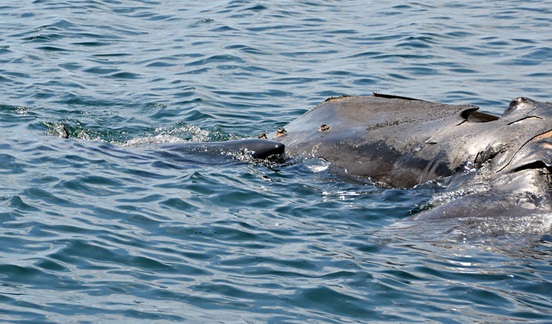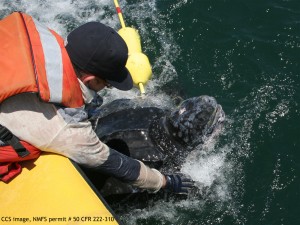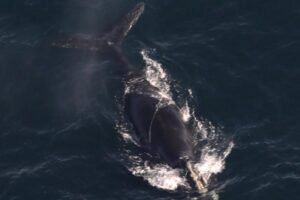Some of the world’s largest sharks have been found around the Cape, and for good reason: we have temperate waters and a movable feast of seals and fish.
Since the passing of the 1972 Marine Mammal Protection Act, more seals have crowded popular Cape beaches, bringing with them the famed apex predators.
People are rightly curious about this finned phenomenon – and in the past few years, “shark tourism” has brought droves of people from across the region to see these graceful and powerful creatures.
Types of Sharks Near Cape Cod
Just talking about Great Whites would only paint part of the picture. There are 13 species of sharks than can be found swimming in New England waters, but here are some of the most common around Cape Cod.
Shortfin Mako Sharks
Mako sharks are often confused with Great Whites because the two share a very similar appearance. But a discerning eye can separate them, if it knows what to look for – Makos are typically around 8 to 10 feet long, their top halves a silvery-blue and bottoms, silvery-white. The heads of Makos are more slender and seem to hold less “girth” than a White shark’s.
Basking Sharks
Another species often mistaken for Whites – and although Whites can grow heavier, Basking sharks are the second largest fish in the ocean. The two have similar 1st Dorsal Fins, generally what most people notice jutting out of the water when the fish are close to the surface. If you can get close enough to a Basking shark however, you’ll notice the 1st Dorsal is a bit further away from the Pectoral fins, or the ones found on the animal’s sides forming a “t.” On a Great White, the Dorsal is almost perpendicular to the Pectorals. Another difference lies in color; Baskings don’t show as much white on the underside as Whites do. Their large mouths open wide to feed on plankton.
(Great) White Sharks
Out of the Cape’s 559.6 miles of shoreline, only .0017857 have had documented shark contact, according to the Cape Cod Chamber of Commerce. White shark numbers around Cape Cod have increased in the past 20 years, mostly due to increased seal protection. The last fatal attack around Cape Cod was in 1936 off Hollywood Beach in Mattapoisett. Clearly, the numbers are nothing to get too scared over: education, coupled with common sense, can easily prevent shark attacks from any species, but especially the infamous Great Whites.
That said, the top of the ocean food chain is truly a marvel. White sharks can be found in oceans across the world, due to their higher range of temperature tolerance compared with most sharks. They’re typified by large patches of white on the belly and into their sides, a bulky head and “shoulder” area, and a gratuitous amount of white on the undersides reaching up into what you might call the “chin” and “nose” solidifying its name.
Porbeagle Sharks
The only shark on this list here year-round, the Porbeagles have an incredible tolerance for temperature. Their Dorsal fins have a unique patch of white in the back, and have a rounded top compared with the more angular, triangle-shaped Dorsals of the above species. You’ll typically find Porbeagles swimming in groups, with individual sizes ranging from 5 to 10 feet long.
Spiny Dogfish
The Cape Cod Fisherman’s alliance has recently promoted the Dogfish as the next seafood source since it is more abundant than Cod and other groundfish. These sharks are much smaller than any of these listed, and have likely been encountered by fisherman seeking bottom-feeders like flounder and scup. These fish rarely grow over 5 feet in length.
Blue Sharks
These inquisitive sharks are known to stick around boats, especially if chum is dumped overboard. Blue sharks are deep water feeders, equipped with a keen sense of smell and a nictitating membrane on their eyes for protection. Scientists and fishermen alike have documented some of the largest Blue sharks in the Cape Cod area. Look for a more slender shape with slightly longer pectoral fins.
Learn How to Avoid Great White Sharks on the Cape
Click the discover more button below to find out how to avoid this mammoth, beautiful fish!


























Speak Your Mind